On the Line: A Halt in London
“What is your plan after December [2023]?” asked Ngawang, my colleague at Sherubtse College as we exited the Head of Department’s office after the programme meeting of the BA Political Science and Sociology. On 15 June 2023, the faculty of the programme met to discuss module assignment and summer teaching for the repeat modules of the first year students. It was our second meeting pertaining to the module distribution. During the first meeting, I was assigned Undergraduate Research (RSM302) as one of the two modules for the academic year July 2023 – June 2024. The module is a year-long research project for the final year students. The module allocation was a continuation of my previous academic year’s assignment in which I supervised the final year students’ research projects. With my contract ending in December 2023, we reassigned the modules, assigning another faculty to supervise the Undergraduate Research. These new arrangements would ensure continuity beyond December 2023 – another semester for the students. Ngawang’s contract would end on 30 June. He joined for a four-month fixed-term contract to replace a senior faculty member, Mr Tashi who resigned in March 2023.
Did Ngawang’s question surprise me? No. On 18 October 2022, President made himself available to meet faculty on ‘fixed-term for some consultations in connecting to the ongoing reform.’ I decided to visit the President’s office the following day. We happened to meet at the college’s canteen on the evening of 18 October. He asked me about my long-term plan. “I did not have any specific plan when I joined Sherubtse. But given my nature of employment in the context of ongoing reform, I am aware that regular employees will be accorded priority. I am prepared to embrace the impending situation,” I submitted!
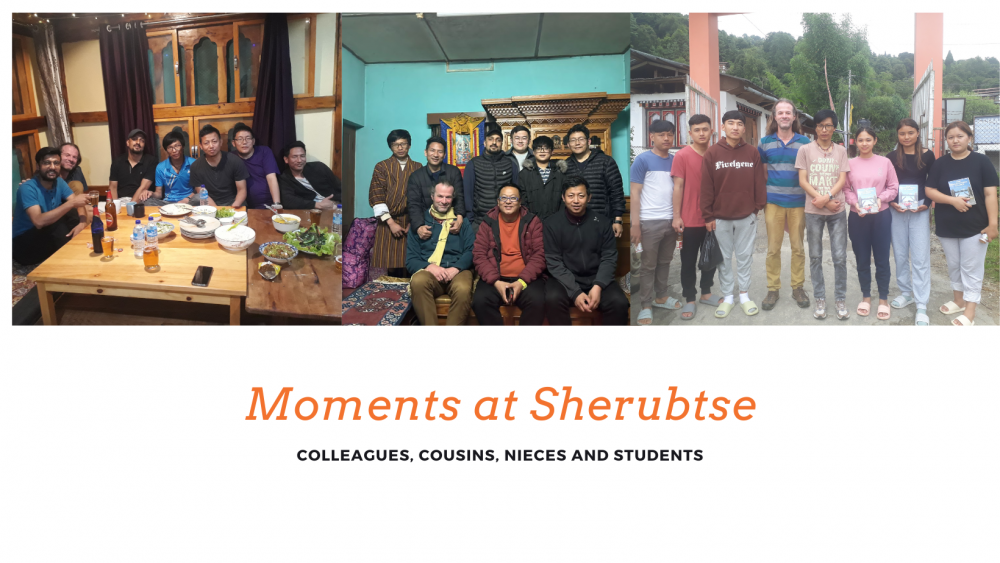
As a part of the reform, no less than nine programmes from arts and humanities, social sciences and sciences Departments including BA in Political Science and Sociology have been discontinued. Three new programmes are being offered. These include Bachelor of Digital Communication and Project Management, Bachelor of Data Science and Data Analytics, and Bachelor of Economics and Political Science. Political Science as a discipline has been retained as a part of Bachelors in Economics and Political Science. The reform process began in Spring 2022.
I joined Sherubtse in February 2022 as an Associate Lecturer for Political Science. On my return home after completing MSc in International Relations from the London School of Economics and Political Science (LSE) in September 2021, I waited for four months, from October 2021 to January 2022 to open job positions for faculty at Sherubtse. I managed to get selected. I was recruited on a fixed-term basis with my contract subject to renewal every semester. I would get to work with my former lecturers; I became their younger colleague. I have had the privilege of enjoying their affection and care akin to older-brotherly affection to their younger brother. On 14 January 2022, after I was selected for a faculty position, I met with two Mr Tashi, my former lecturers, and faculty of Political Science. During our meeting at M/s Nineties Restaurant, Thimphu, we allocated modules. I was assigned three modules, including Political Theory and Ideology for the First Year, Second Semester students. I requested I be assigned Classical Political Thought instead. Two Tashi assented.
I had a couple of reasons to seek employment at Sherubtse. In addition to my indication in my Chevening Scholarship application to teach Political Science in the colleges under the Royal University of Bhutan and its linked and affiliated colleges, as my alma mater, I had an emotional attachment. Related to it, after more than 5 years of professional experience, as a keen observer of Bhutanese politics, and with some of my unfulfilled aspirations for my alma mater, I thought, perhaps I can help achieve the results I was expected to achieve for my alma mater but failed, through my students. Third, having done a commentary on Bhutan’s regional inequality and Thimphu centric plan, I had resolved that I will not look for a job in Thimphu, Paro and Phuntsholing. It was a policy position.
At Sherubtse, I learnt in my 30s what I could have learnt in my 40s. Having to appear to know before students, I felt obliged to consult multiple sources. The exercise was taxing. In hindsight, it was a fulfilling experience. Having to teach three modules, teaching no less than 140 students, and assessing course works, particularly during my first semester between February and June 2022, most of the time, I went to bed at 23:00 and got up between 03:00 and 04:00 in the morning. Perhaps I was not able to manage my time. Even to this, my former senior colleague, now in Australia, calls me at around 03:00 at my place thinking that I get up at 03:00, always. As Phub would call me, in Sherubtse, I became a ‘hermit academic’.
Aware of our hierarchical culture, enmeshed in symbols and signs, which are not necessarily helpful in having open discussions and pursuing curiosity, I made concerted efforts to sidestep those protocols associated with outward gestures. During the very first class with a new group of students, I would make my points clear: you do not have to stand up when I come in and leave, and need not have to vow when we meet outside. We are equals! Some would continue to stand. I did not tell them to sit. I do not say the same things twice. They would sit. I was very particular about time and the work they submitted which they were able to infer from the feedback I gave on their works. ‘Cannot imagine Dechen Sir reads all the assignments word by word,’ wrote one student in the semester-end feedback in December 2022. Tenzin, a final year student, in her WhatsApp message to me, wrote, “Just that sir is a very tough person to impress…But I on my part understand that it is for the benefit of the students...” Were I of help to my students? I doubt it. Certainly, interacting with four cohorts of students broadened and deepened my horizon of thinking. I thank each one of you!
I tried to be as open and accessible as possible stating that they can come to me if they are dissatisfied with my approach, and needed explanation on the grades they earned in their course works. A few of them turned in. In May 2023, Sangay and Sonam, two female final year students came to my office seeking further clarifications on the feedback I gave on their draft research projects. As a part of our conversations, they shared with me how they found it difficult to seek clarifications on the grades they got. “We were afraid that if we seek clarification, it would be interpreted as going against a tutor, who in turn may award us failed grades.” It was one hard observation to swallow. But it did not surprise me. ‘No tutor should take such an approach, and they may not weaponise their authority. I definitely will not weaponise my authority.’ I assured them. By then, if everything works well, I have no more than two months left in Sherubtse. At the bare minimum, I felt a sense of comfort that students could share their concerns and apprehensions to me – to their tutor – one-on-one, and openly. I interpreted it to mean that I have gained their trust and confidence.
Laxity among some students was unreasonably common. Among others, calling-off classes would be the happiest news for some. Sometime in late Spring 2022, on one rainy morning, a class representative gave me a call enquiring if I can take my morning class with them in the afternoon since ‘it is raining.’ It took me by surprise. I took my scheduled class. During my one and a half year’s stint at Sherubtse, I missed one class – to attend the cremation of a support staff.
Despite my fixed-term employment, Sherubtse involved me in the information dissemination and module development pertaining to the new programmes. Bachelor of Economic and Political Science was particularly relevant to me within which I got to work as a team member to develop the core syllabus of International Relations module as a member of the School of Economics and Political Science. The exercise allowed me to use my knowledge and understanding on the subject from MSc in International Relations. It also gave me an opportunity to work with the Singaporean consultant, Dr. Alex (PhD). On the morning of 29 June 2023, at the Paro College of Education, after we completed our discussions on the module syllabus, I sought eleventh-hour advice for a PhD interview. I had a selection interview that afternoon at 15:00 hrs Bhutan Standard Time (BST).
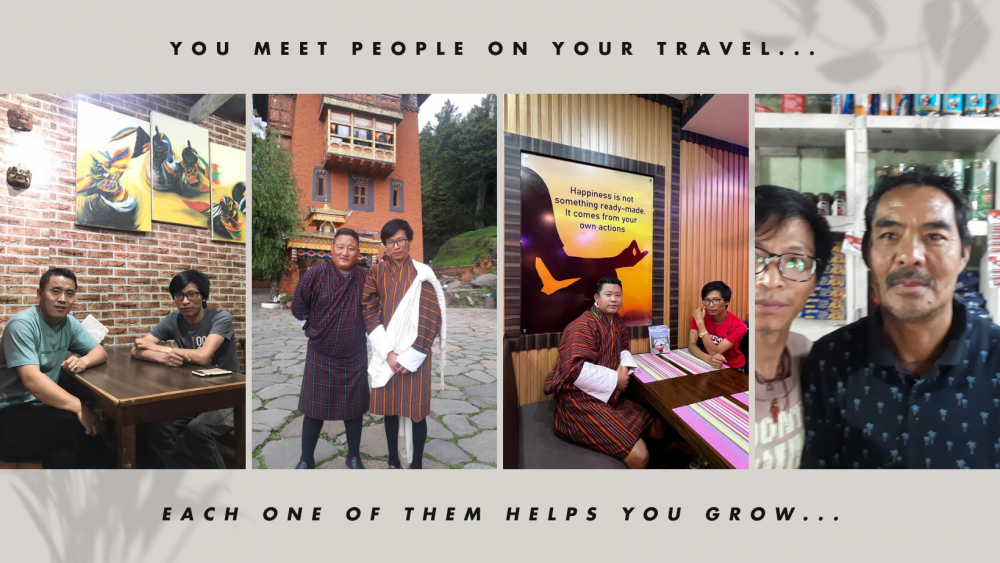
“From the programme perspective, I do not want to lose you. But it is for your growth. Would you return to Sherubtse after your PhD?” asked Dr. Alex after he shared his ideas as to how I could approach the interview. I had requested a room at Paro College of Education for the interview through a colleague. However, the person concerned appeared to be engaged. I reached out to my friend Ugyen, a teacher at Drugyel Central School, if I can give my interview from his place at Drugyel. Mr Tankar, my senior colleague at Sherubtse, who was also at Paro for the consultative meeting on the new programme, dropped me to Drugyel. Actually, for the three-day consultative meeting, I was putting up at Khangkhu at my friend Galey’s place but the internet connectivity at his place was not strong. Perhaps I was meant to give an interview to study Drukyul from Drugyel! At the end of the interview, I thanked the panel, “As Bhutanese would say, thank you beyond the sky and the earth for the opportunity…I look forward to seeing you all in person.” One of the panel members smiled.
Was the thank you note scripted? No! What gave me confidence? The panel’s reactions to my responses. Guiding final year students their research projects, the assignment I accepted with certain reservations helped me in developing the project proposal. Teaching Classical and Modern Political Thoughts gave me deeper insights on both occidental and oriental political thoughts. And my master’s dissertation was particularly useful and relevant. My friends Dr. Sonam Wangchuk (PhD) and Sonam Rinzin (PhD student) helped me get literature from their universities’ journal databases. After my proposal was short-listed, I bought three books worth Nu.7,144/- from India to prepare for the interview. Yan, a friend of mine from the Royal Institute of Management days, and Foundational Leadership Programme (FLP) – 2, the Royal Institute for Governance and Strategic Studies who was in Phuntsholing, now in Australia helped me get the books from India through his librarian friend at Samtse. Apparently taken aback, “The price of this book is Nu.5,250/-”, the librarian had left a voice message on WhatsApp which Yan forwarded it to me. My other friends of FLP-2 would search for online copies and share with me but I have always preferred hard copies – my eyes are more acquainted with paper than screen, and I have other goals with books. My supervisor, Professor Nitasha’s feedback was timely and instrumental. In addition, I went through the biographical profiles of the six panel members including their profile pictures for which the list was shared in advance. It helped me visualise possible questions by reviewing their academic backgrounds and specialisations while checking profile pictures made me a little more acquainted with their facial expressions.
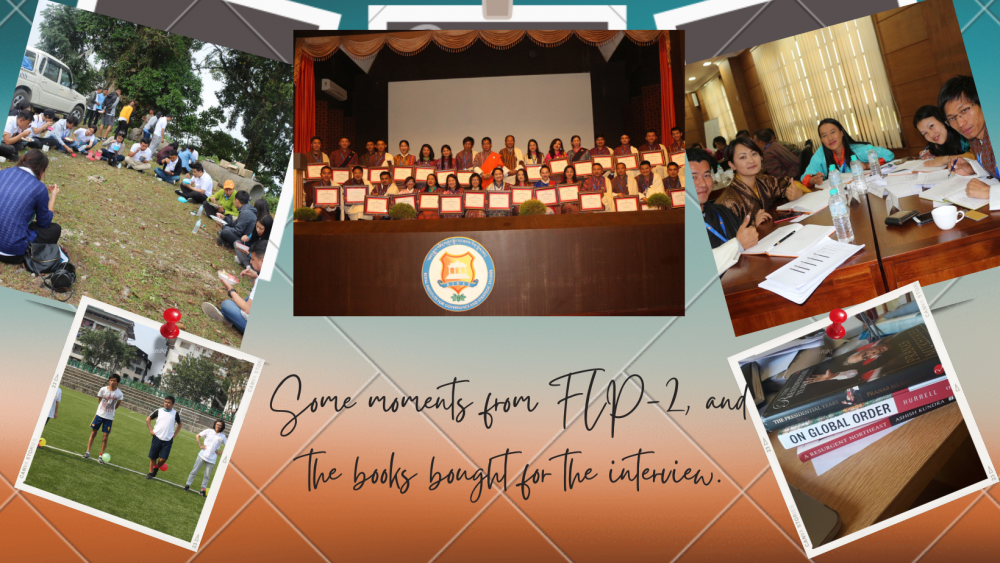
I invested my resources – energy, emotions, time and finances – for the interview like no other. Why would I invest so much relative to my financial situation and work at hand? My livelihood in accordance with my principle was at stake; the message I am crafting was at stake.
As time wore on, it was becoming increasingly evident that I will have to separate from Sherubtse come December 2023. In July 2022, during my summer vacation in the village, I informed my parents that I am planning to apply for my studies (they do not understand what PhD means), and I might be away from Bhutan for a long time, at least 3 to 4 years. When I got chosen for Chevening Scholarship to study MSc in International Relations at the LSE in 2020, I thought, given the place where I started from, master’s degree should be enough for me to an extent that I shared with my supervisor at the Bhutan Centre for Media and Democracy, Dr. Chencho (PhD) that I have no plans to do a PhD. While in London, as much as my studies, I dedicated my time to follow happenings in Bhutan doing at least a blog in a month throughout my entirety of stay, i.e., 12 months. If I had the luxury to redo one thing in my hitherto life, I will choose to study MSc in International Relations at the LSE, AGAIN.
Things in and around me changed. Towards the end of my masters, an inclination towards doing a PhD developed in me. At Sherubtse, I concluded that it is the means to forge my life ahead. On 28 September 2022, I wrote an enquiry email to the University of Cambridge on the procedure and criteria for PhD applications. My grades from LSE are not that good. I was intending to submit my applications in September 2023, with the course commencing in September 2024.
But the things on the ground are moving fast. There is no certainty that my application will be accepted at the first try. Even if it is to, my contract with Sherubtse will end in December 2023 which would mean I will have no paid work for about 8 months. I found it difficult to contemplate such a world of vagabond – I have committed three months between July to October 2019 without a paid work to organise National Youth Conference which failed at the last stretch; waited for four months between September 2021 to January 2022 to join Sherubtse; stayed without a pay in January 2023 to continue my work at Sherubtse as a fixed term employee. All through these transitions, I did not tell actual facts about my nature of employment to my parents. Of course, I did not lie either. They still have not come to terms that I resigned from the civil service. Yet, they have their trust in me – as I do not drink, do not smoke, and see my being vegetarian in a good light. To my mother, my not hanging out at night gives her confidence. “I trust you since you do not go out at night,” she tells me even to this day. Some of my friends may not agree with my mother. I simply could not think of a situation where I will be compelled to bluff to my parents about my work, again. No more.
In addition, I have always believed that I owe to give back to my community. Hence, I work towards creating and developing a narrative that is in my favour. If I am to stay at Sherubtse till December 2023, I will have to separate from Sherubtse based on Sherubtse’s decision, not my decision. I will be rendered irrelevant and redundant. Next time, if I am to say, I want to commit to a project for the community, people would say, why would you be so naïve and idealistic given all your previous experiences including separation from Sherubtse. Where does this assumption come from? In Autumn 2021, as I was preparing to return to Bhutan from the United Kingdom, people questioned me why would I return to Bhutan now when I did not have any obligation. I did not listen to them. I do not want to create a situation where they might comment, “See, I told you not to return to Bhutan in 2021.” I want to tell people, “I resigned from Sherubtse, and I was not made redundant.” I am not indispensable though.
Amidst such a milieu, forecast and mental exercise, in the third week of March 2023, a number of people shared with me a link to PhD positions at the University of Westminster, London, United Kingdom. I committed to it immediately. Prior to that, I reached out to my former lecturer, Dr. Mateo (PhD) to seek guidance on PhD opportunities and applications.
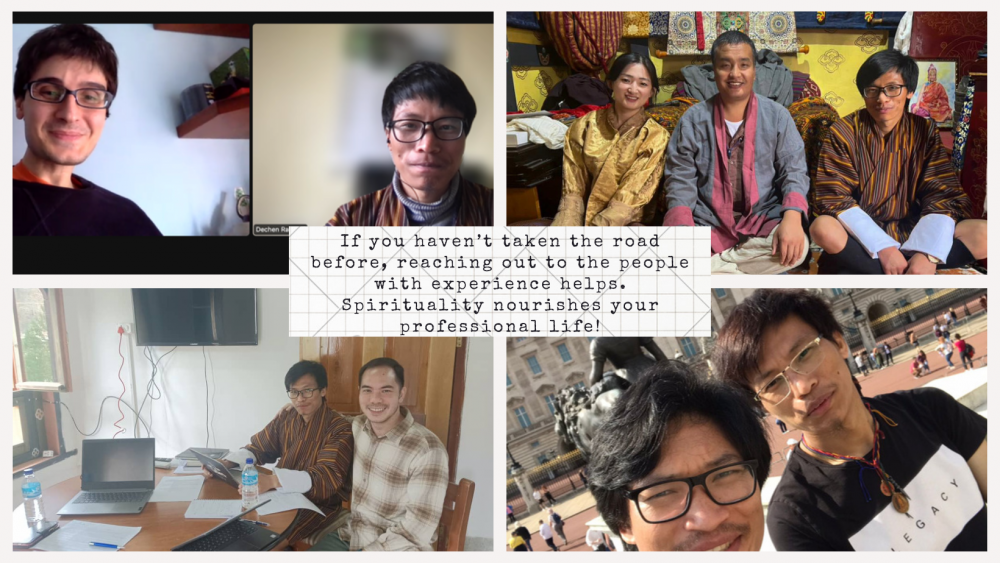
As I started working on my proposal for which the deadline was on 19 May, on 29 March 2013, I wrote to my closest friends, “If everything goes well, I will be in London come September…wish me luck, as you all always do🙏.” As my application progressed, I requested Professor John Sidel, my dissertation supervisor at the LSE, if he could provide me with a recommendation. “I’m really glad that you’re going on to the PhD and I hope it works out for the best. Please feel free to rely on me for further letters of reference as need be,” wrote the Professor after submitting the recommendation. “I have a good feeling,” observed Dr. Dolma (PhD), my long-term mentor who is my second referee. On the day of submitting my application on 19 May, Dechen, a friend of mine, wished me, “May everything be auspicious as you say.” Indeed, she helped me do the timeline of my project proposal on Gantt Chart.
On 25 June, along with my colleagues of School Economics and Political Science, I left Kanglung for Paro for a consultative meeting with Dr. Alex on module development for Bachelor of Economics and Political Science programme. Before we started our travel, considering I will be travelling for two days, and have space to think and prepare mentally for the interview, I reached out to Dr. Passang (PhD), Honourable Member of Parliament to the National Assembly to seek interview advice. “…When the world is full of pride, humility can be one selling point…” Dasho observed. “You have a firm academic grounding. You will get it,” he concluded. In Autumn 2020, Dr. enquired if I am inclined to go for a PhD after my masters when I sought his advice on my master’s dissertation. “I am interested…. But I will have to balance my other aspects,” I responded. Priorities change. Do not say ‘No’ to life.
The previous night before we left for Paro, the faculty of Political Science and Sociology met over a dinner to bid farewell to Ngawang. At that time, I received a call from my mother asking where I would go during my summer vacation. ‘I have module development work at Paro, which is followed by a training for the newly elected Members of Parliament to the National Council,’ I explained. ‘Is it you who would get trained by the Members of Parliament or did you say you are training them?’ she asked. I explained again that I will be one of the resource persons for the training. She could not believe it. ‘Are you sure you can do it?’ another question followed. To my parents and relatives, I am always that ‘timid, shy and introverted boy.’ Yes, you are reading it right!
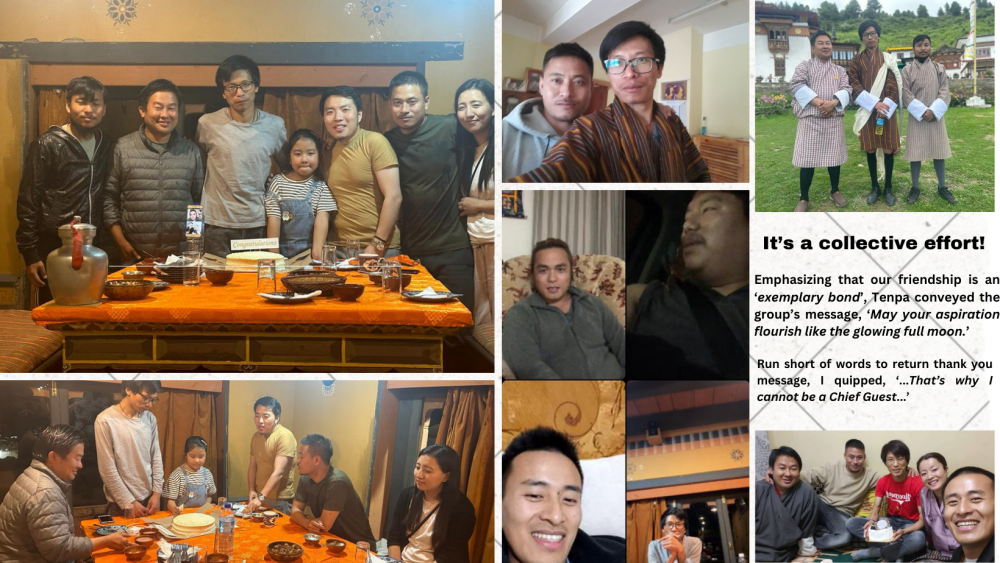
I have been selected for the PhD studentship. I informed my friends, mentors, relatives, and parents. “The news makes my day. My best wishes and keep making people think!” wrote Dr. Passang. Dr. Alex wrote, “Dechen, congratulations!! I am truly very happy for you! All the best and I hope you continue to contribute back to Sherubtse and Bhutan!” “Congratulations. Can’t wait to call you Dr Dechen. Always been proud of your accomplishments. This is another of the many more. I wish you luck with the course,” wrote Kezang, one of my closest friends. As my departure approached, my mother advised me to leave my friends’ contact numbers. ‘Your friends have not only been good to you but also to your sisters,’ she stressed. In all those transitions, I was putting up with my friends. I cannot thank them enough. At Sherubtse, it has become an established trend among students to identify their tutors by initials of their names. As I learnt, they refered to me as ‘DR Sir’. Some of my friends would also address me as ‘DR’. Yes, in three years’ time, I look forward to having the title Dr. in front of my name.
In the early hours of 08 September, having booked my flights the night before, I informed my parents that I will be leaving Bhutan on 18 September. Once again, they commented, ‘For how long and how much will you be studying?’ Run short of vocabulary to explain in my mother tongue, I said that I will be having the title Dr. after I complete my studies, but not medical doctor. “Yes, I got it. I am saying yes for the sake of saying it though I did not understand,” Ama observed. Kencho, a friend of mine from Mongar, over our dinner at M/s Mamphung Zakhang shared how he finds it difficult to explain to his parents that he will be pursuing a PhD. Yes, I will be doing a PhD and might get the opportunity to insert the title Dr. (PhD) in front of my name. Deep down, I will always be that ‘shy and timid boy’ to my parents.
I also made a courtesy call to Dasho Jigme Zangpo, the second speaker of the National Assembly after Bhutan’s transition to democracy in 2008, to inform him that I got selected for a PhD. We are from the same gewog, Drepung. ‘Boy, you will be the first person to do a PhD from Drepung’ [Khotsa, Drepung gey PhD phin khan go dang pa nan re le la]. Trashi Delek,’ he congratulated with excitement. As one of the foremost civil servants from Drepung, Dasho had played an instrumental role in establishing Bumpazor Primary School, the school where I began my formal education.
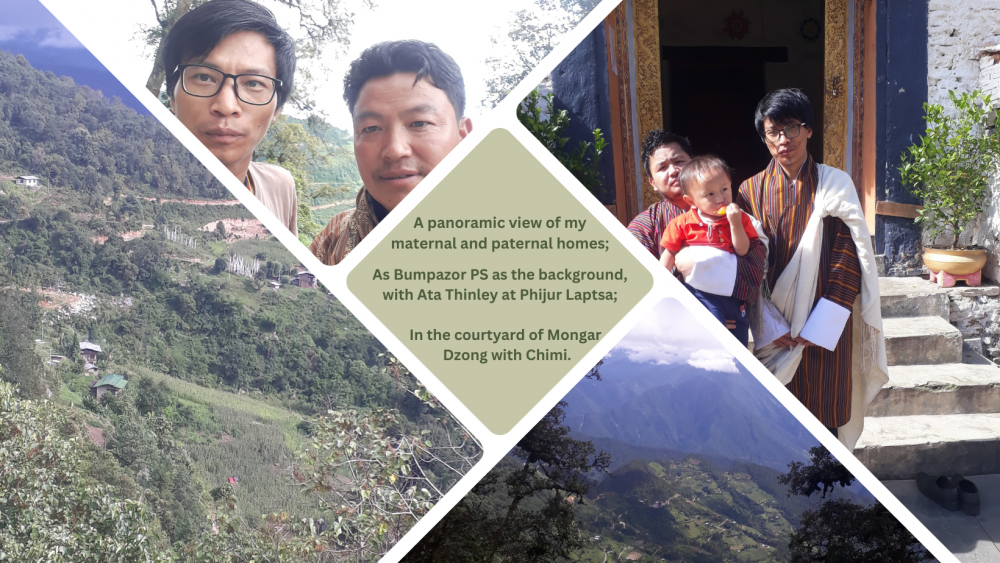
Dasho’s congratulatory words made me reflect on the efficacy of public policy. Raised by illiterate agrarian parents, struggling to meet a day’s end during my childhood and adolescent days, my being able to pursue a PhD, as public policy lexicon explains, is a testament to progressive ‘social mobility.’ At one time, we were serving our meals by a broken ladle borrowed from a neighbour for months. Your low socio-economic standing should not bar you from achieving something big. Drepung, a home to 252 households, was not connected to the road until 2007. Electrification began towards the end of the first decade of the current century. The first primary school was said to have opened in the 1980s/90s. Can my journey explain a phenomenon of another public policy jargon, ‘spatial mobility’? The place and space you are born in should not determine your life’s trajectory. It has ripple effects. As my communities hear and talk about my PhD, it opens their mind and curiosity to something that they had never heard about. As you read this piece, I have vivid recollections of my uncles, aunts and relatives who would give me a departure gift (lamchu) ranging from Nu.5/- to Nu.10/- when I headed to Drametse to continue my lower secondary education. These amounts would help me buy pens, pencils and laundry soaps. These were very much an integral part of my journey. I owe each one of them a debt of gratitude. Hopefully, I can return a favour, soon. ‘Mongar gave me hope and I would like to return hope to Mongar.’
And a beneficiary of the public policy and social support system got an opportunity to deliver a session on social policy to the Members of Parliament in July 2023 at Paro. I thank my senior colleague, now Dean of Academic Affairs, Mr. Sonam for placing his trust and confidence in me and including me as a resource person. Jamyang, a good friend of mine, and a member of Parliament to the National Council, asked, ‘Is it [PhD] at Oxford or Harvard?’ when I informed him that I am going for a PhD. I had to bury my dream to go to Oxbridge without even submitting an application. If none of my students are working towards studying in Ivy league schools and Oxbridge, I will work towards my children [plural noun is a deliberately choice] studying in these schools. A mirage?
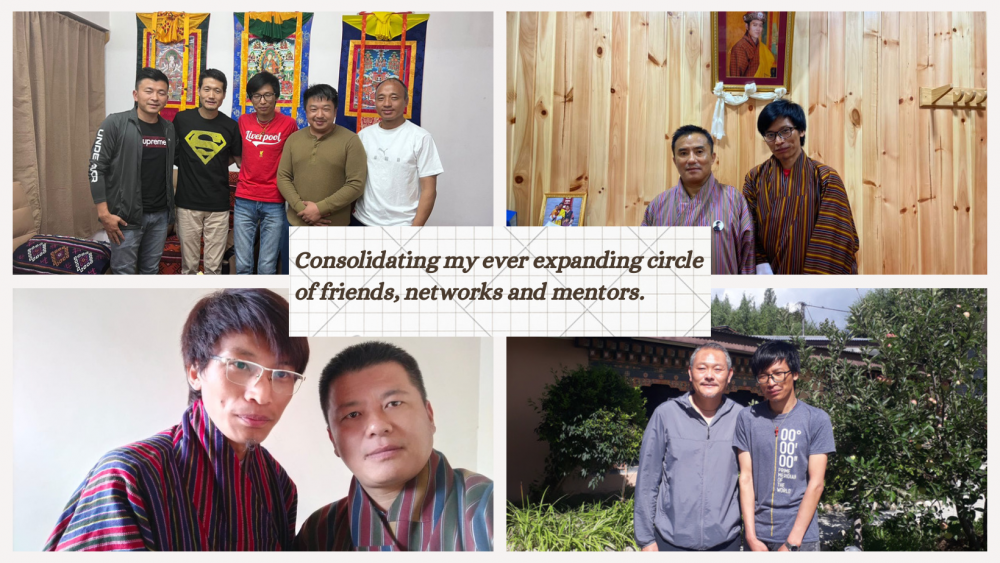
On learning that I am headed for a PhD vis-à-vis my marital status, on two different occasions, a distinguished Member of Parliament (name deliberately omitted) commented, ‘Three years is a very long duration. You might marry a foreigner.’ ‘I have never thought about it, Dasho,’ I replied. Friends and cousins asked me if I am going with a ‘friend’ (charo). You have to read between letters when your female cousins say, ‘friend’. As it has become a trend, some asked me explicitly if I am going with a ‘de facto’, which I call it a pseudo partner. I see marriage as a sacred institution. In biographies, and real time observations, I learnt and saw people fail in their careers, families broken, children orphaned, and relatives distanced attributable to broken and failed marriages. Of course, there are exceptions. At this stage of my life, I am not trying and testing something, not certainly on this aspect of life. I simply do not wish to have a laundry to clean it later.
For an unmarried person, following an established trend of going abroad with a pseudo partner certainly would be an added advantage, financially. I had to borrow money to pay my visa fees and immigration and health surcharges. I follow conviction, not convenience. With assurance from my Belgian colleague, Wim, I paid those fees by mobilising an amount from my friends from abroad, particularly Australia. In five to ten minutes after my request, Karma, my long-term friend and a classmate at Sherubtse, instantly lent me AUD 4,000/-, and my friend Kezang ensured that all payments were processed from his accounts using his debit card. Despite facing numerous counts of financial difficulties at different stages of life, money or material gains had not been my topmost pursuit. In 2018, when I published my debut book, ‘Youth Civic Engagement’ with financial support from Sherubtse College, Sherubtse’s focal person suggested, ‘We hope Sir will not charge much for writing.’ Sherubtse agreed to publish the book as a dedication to His Majesty the King, launching it on 21 February 2018. ‘Since the book is dedicated to His Majesty the King, I cannot take money in the name of my King.’ Instead, I thanked him for giving wings to my authorial pursuit.
Amid ongoing Australia Rush, leaders attribute the mass exodus primarily to people’s pursuit of money. Money can be a factor, but not to all. Attributing money/income as the sole reason for the mass exodus is equivalent to prescribing paracetamol without a thorough medical investigation. I use the term ‘political paracetamol’ to explain tendencies among leaders and policy makers in Bhutan to come up with blanket remedial measures to our political and socio-economic challenges. Perhaps Abhijit Banerjee and Esther Duflo’s chapter, ‘From the Mouth of the Shark’ in their work, ‘Good Economics for Hard Times: Better Answers to Our Biggest Problems’ may help us identify the different causes of such a phenomenon.
On 30 July 2023, I left Kanglung for my village, Drepung in Ata Thinley Tobgay’s bolero taxi to drop my belongings home. As we navigated the farm road from Kidheykar to Drepung via Phijur Laptsa, using the epithet ‘Sharchokpa Hilux’, Ata was sharing the utility of bolero in remote and far-flung areas where all vehicles cannot ply easily. His use of the epithet made me relate with the issues of regional inequality wherein east-west migration is a continuing trend. Boleros are driven by and large in the villages by people working on the farms, and are imported from India. Hilux are apparently driven by urban upper middle class, and imported from Japan. I do not wish to dwell much on vehicles for I know nothing. I could not even pass the highway test (more than ten meters reverse on a rough road) to obtain a driving licence.
As we approached my maternal home, Ata Thinley observed, “The road is not travelled [Gari ma dang ma la].” I met my mother in the field guarding corn against the monkeys. Older of my two younger sisters has just returned from Gyalpozhing after selling her vegetables at Sunday Market. My youngest sister has gone to my paternal home to guard monkeys and oversee other household chores; and my father was in Bumthang doing carpentry works. I left home for Mongar after barely an hour with a promise that I will return in September after obtaining my visa, before I leave for the studies. I had a bus ticket for Thimphu booked the following day.
Plan changed once I reached Thimphu. My x-ray reading was not normal. I was treated for pleural effusion in 2020. I had to undergo a sputum test for tuberculosis test to obtain a certificate to apply for a visa, which takes no less than 6 weeks to get the final result. I have my orientation on 21 September, and apparently, I should report to the University no later than 06 October by any means. It takes between 15 days to one month to process a visa. It made me think, will a tuberculosis certificate come between me and my pursuit of a PhD? After consulting doctors and my supervisor, I applied for a visa with a provisional tuberculosis certificate indicating ‘culture awaited’, three weeks late from my initial plan. I will get the result of ‘culture’ test on 18 September. I received an email about the success of my visa application on 06 September, and I immediately booked tickets for the 18 September flight. “WOW everything is happening so soon [fast]” observed Sonam, a friend of mine in Australia.
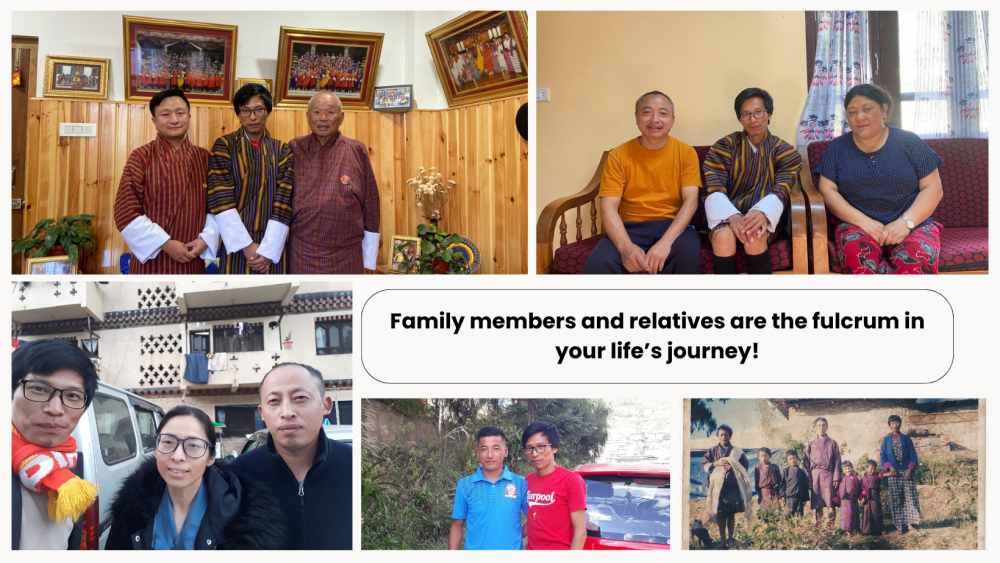
I did not have time to go home. However, in between I was able to dedicate my time to some worthwhile pursuits. My friend Dechen and I agreed to do some work on harmonious living under the supervision of a spiritual master. ‘Are you sure you can deliver and live up to the expectation of the spiritual master? He is omniscient,’ commented Apa when I informed him that I am working on a project of a spiritual master. My parents do not have much expectations from me; I do not have to carry the weight of history.
Nonetheless, I make concerted efforts to carry the country’s history forward. It could not have been more fortuitous than getting to listen to His Majesty the King sharing His concerns and aspirations for the country at a time when I was making a significant transition in my life’s career trajectory. On 28 July 2023, addressing the students and faculty of Sherubtse, His Majesty said, “…Those who do not know history are bound to repeat history…”
People ask me if I am running for an elective/political office. Having studied Political Science, I give my opinions. Will I join mainstream politics? Two political parties reached out to me: one was tentative; the other quite serious as I could make out from their two calls. My friends and literate relatives nudge me to run for elective office that they will mobilise people and rally behind my campaign. Thank you beyond the sky and the earth. A decade ago, as a student at Sherubtse, I thought, I will give a shot at elective office, at least once. Today, I have come to realise that electoral politics is not my staple. But people have different thinking. ‘You only need unwavering commitment. Good people should join politics,’ emphasised my former supervisor and Director at the Anti-Corruption Commission after listening to my tentative plans after PhD. My oldest maternal uncle teases me, “Upon your return, I wish to touch and get the feel of your sword of stature (patag).”
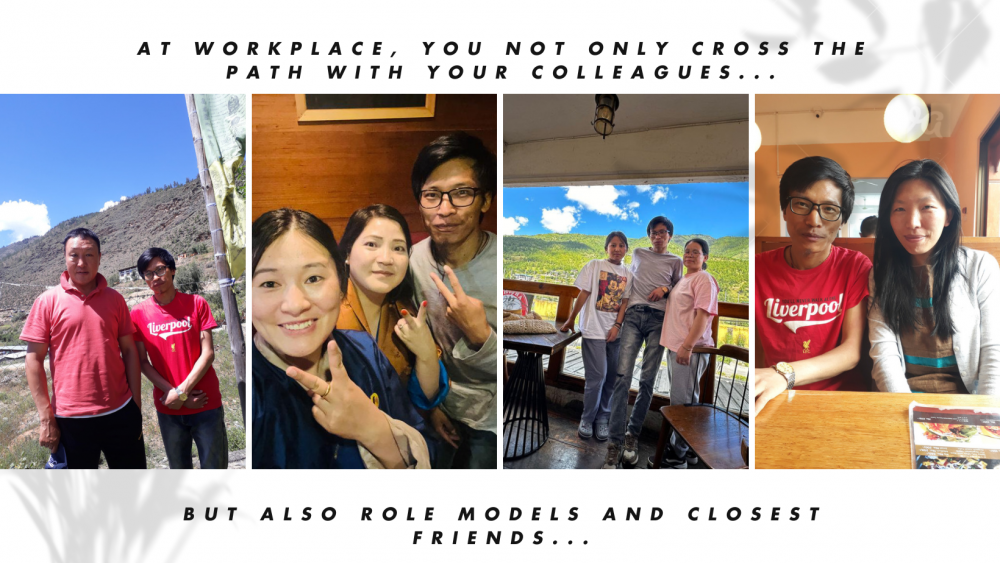
What after PhD? I do not know. When I applied for LSE through Chevening Scholarships, I was quite clear to come back and work in Bhutan. This time, I indicated that I would like to work as a career think tank? But where? On 14 September, over our lunch get together, Ata Tempa stressed, “You should come back to Bhutan.” Dasho Neten, my first and former supervisor at the Anti-Corruption Commission (ACC) who I look up to as a role model stated unequivocally, “You should bring change upon your return.”
Interacting with my mother about my plan, she asked, ‘You are doing pretty well. Why would you decide to go abroad again?’ My last month’s salary, i.e., July 2023 [after pay revision] was Nu.72,891/-. Yes, it is pretty high. As much as my academic interest to pursue a PhD, uncertainty around my job post December 2023 motivated me to work harder to earn a PhD studentship. In Sherubtse, my job was on the line. The script of a story I am writing was on the line. The narrative I am building was on the line. Later, Jangchu, my friend and former colleague at ACC, would observe, “…You know the realities more, now…” With my PhD interview on the horizon, I entered the affirmative statement in my daily journal of 15 June 2023, ‘On the Line: A Halt in London.’ I ought to make my PhD pursuit happen, and it materialised. Earlier in the day, I responded to Ngawang, “I may not stay even up to December.”

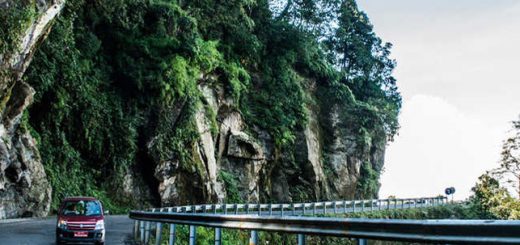
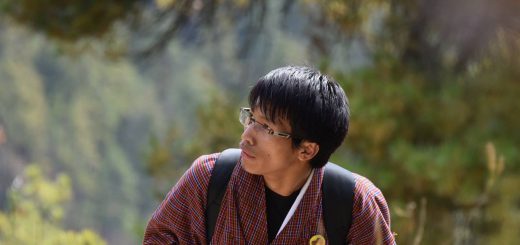
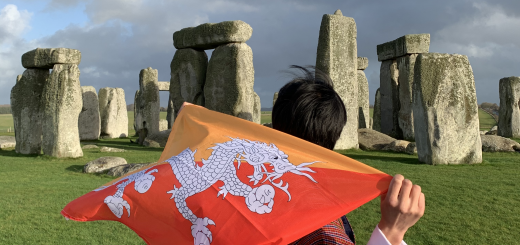
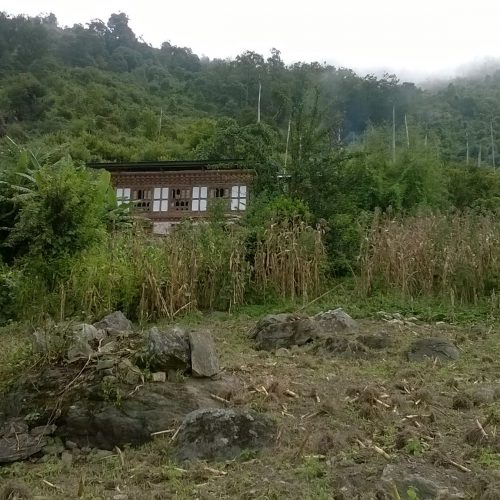
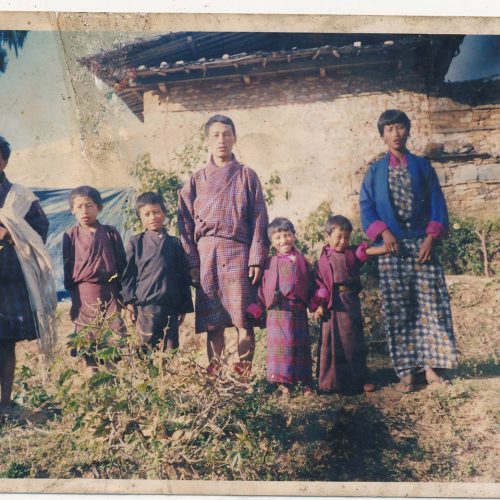
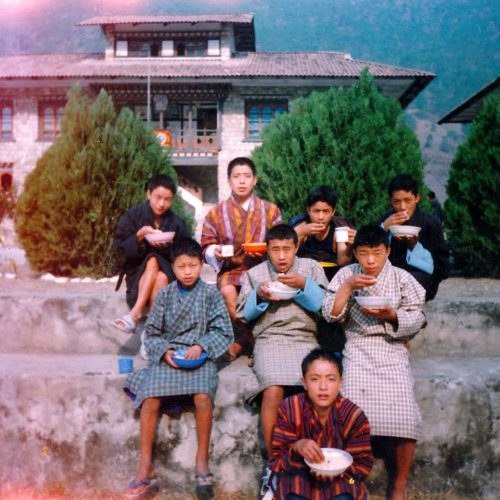
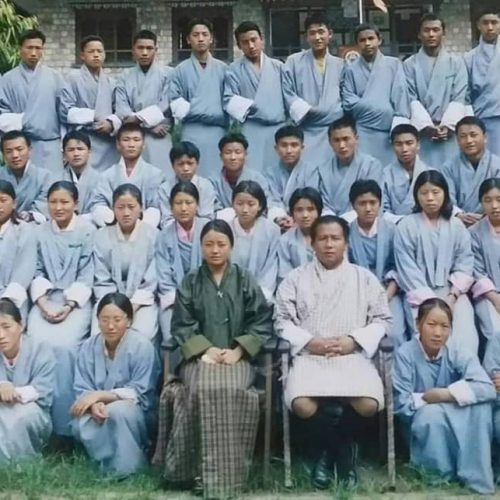
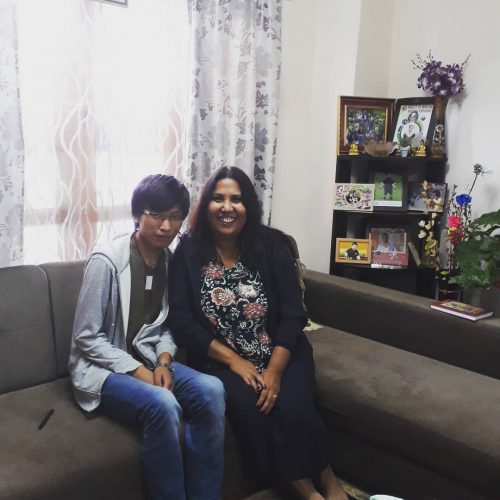
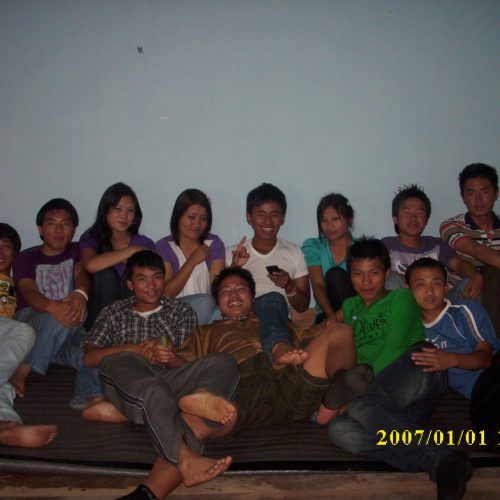
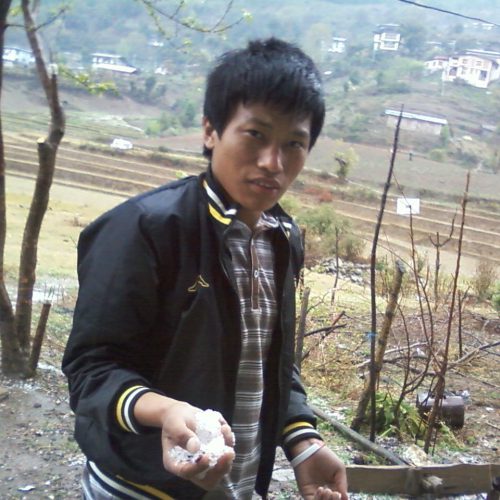
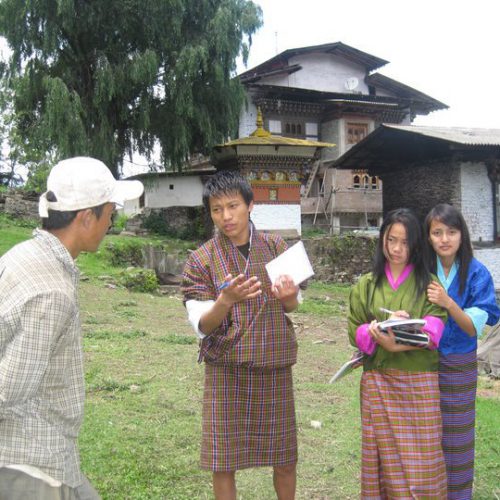
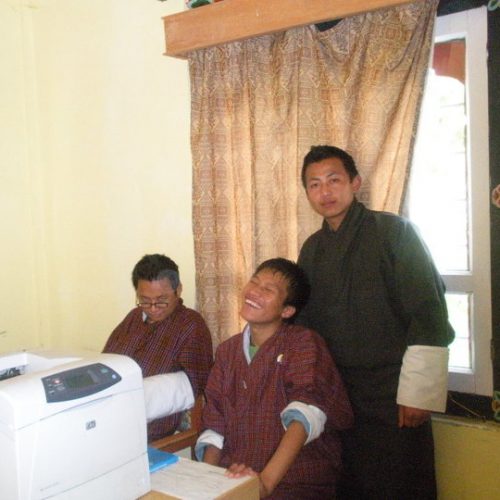
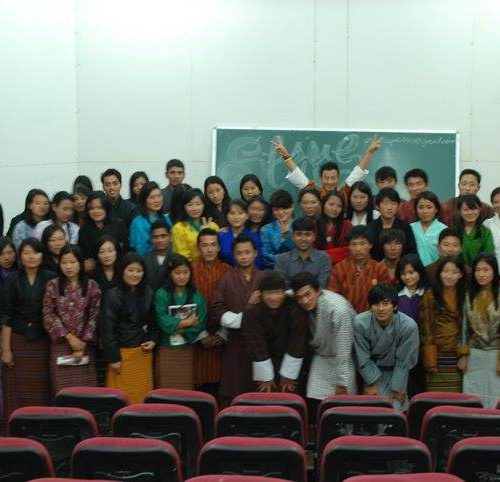
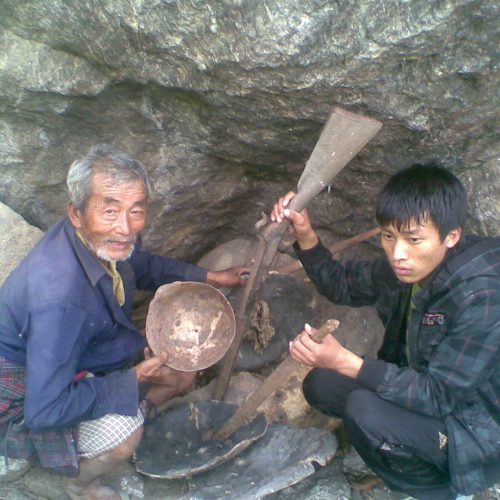
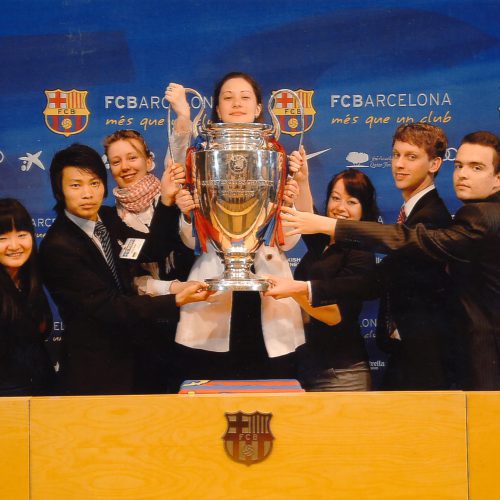
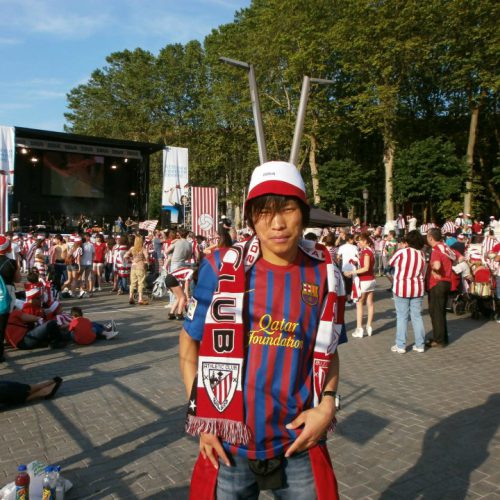
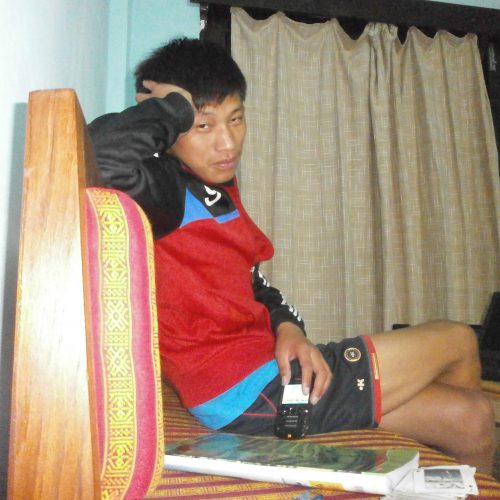
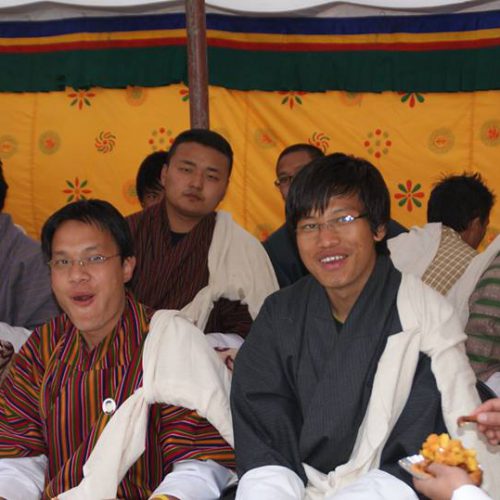
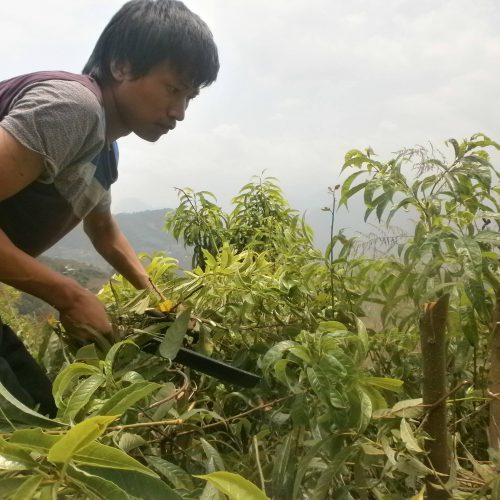
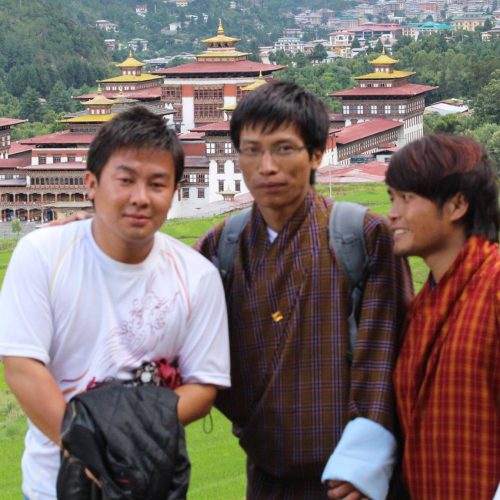
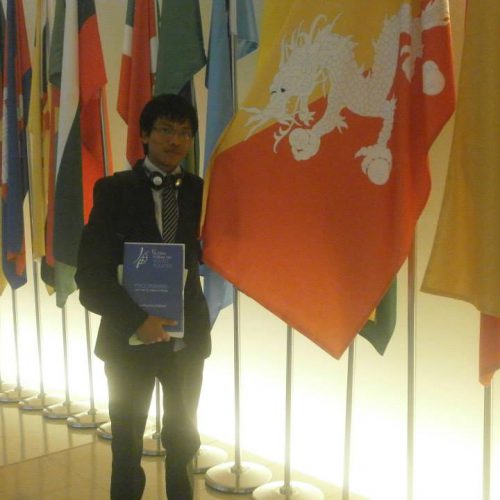
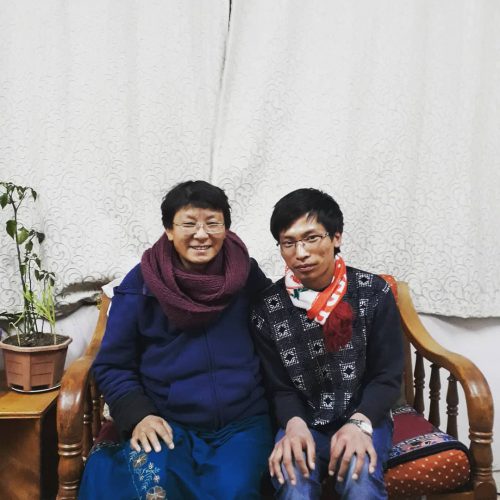
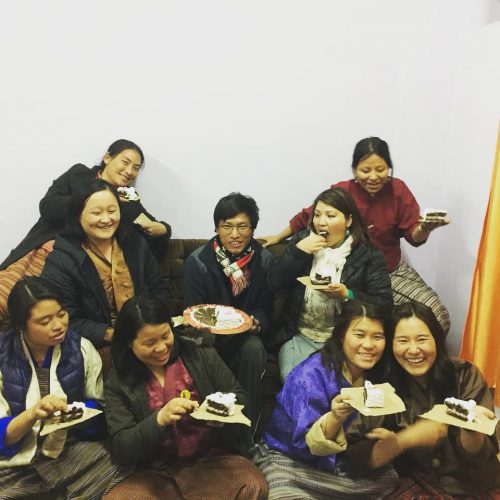
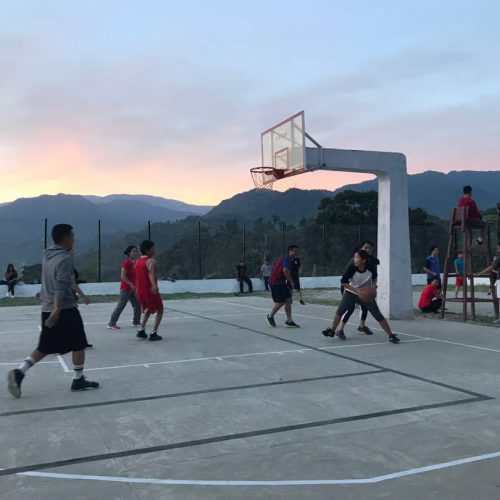
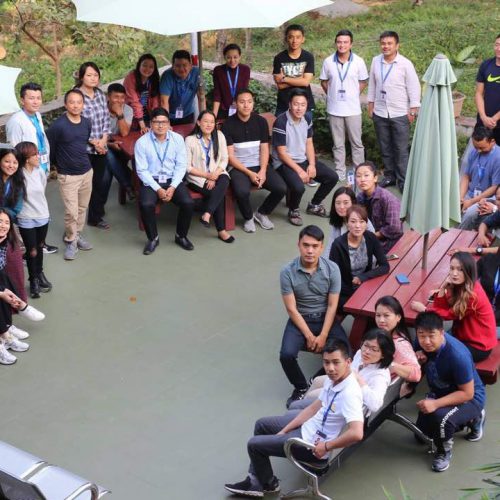
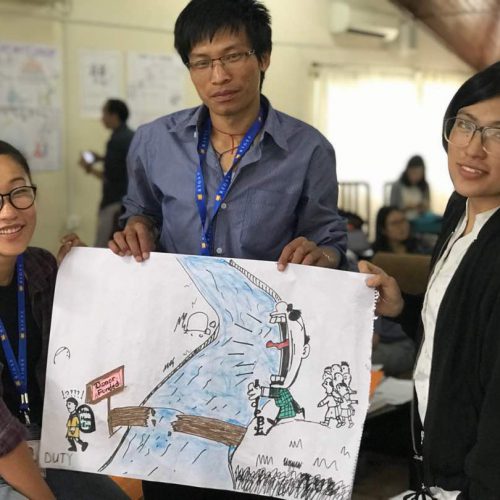
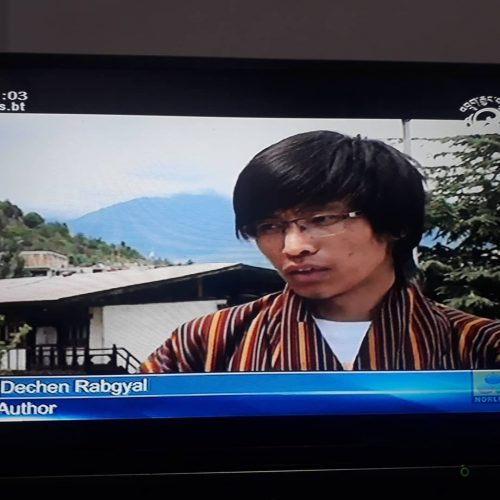
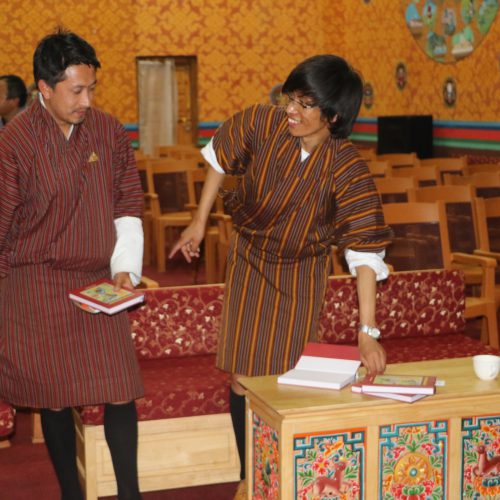
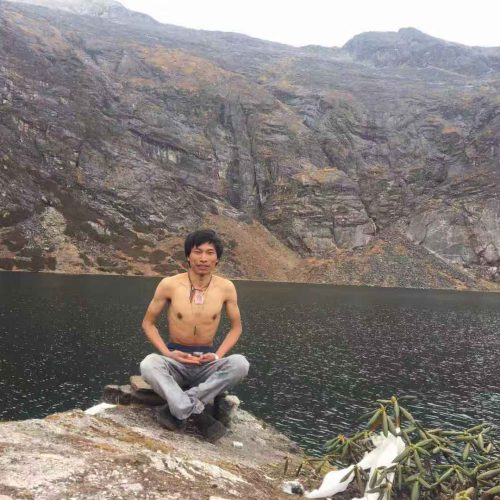
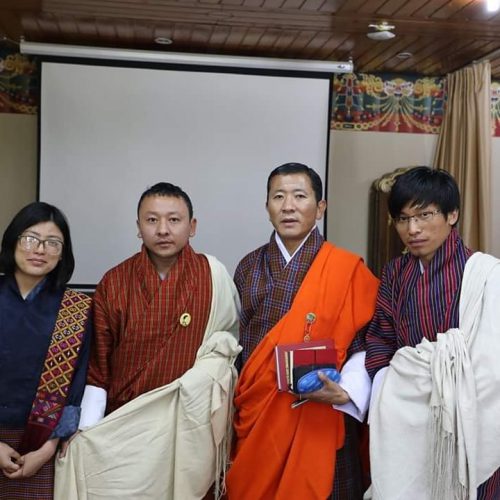
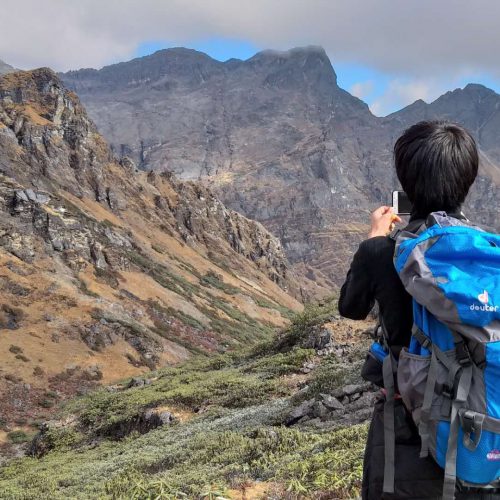
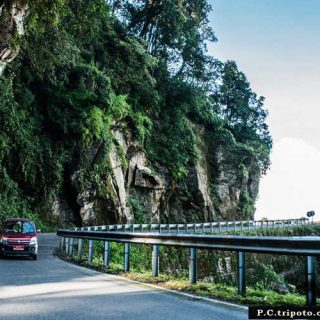
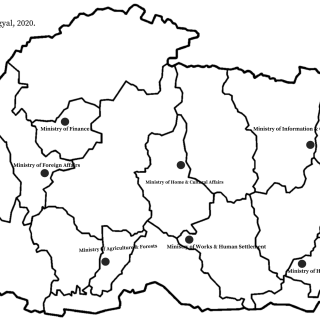

Congratulations DR, soon Dr.
I read each line like a motion picture rolling just before my eyes. I read half of you story during my break and rest at 11pm. I thought you have already done the thesis 😂.
Best wishes